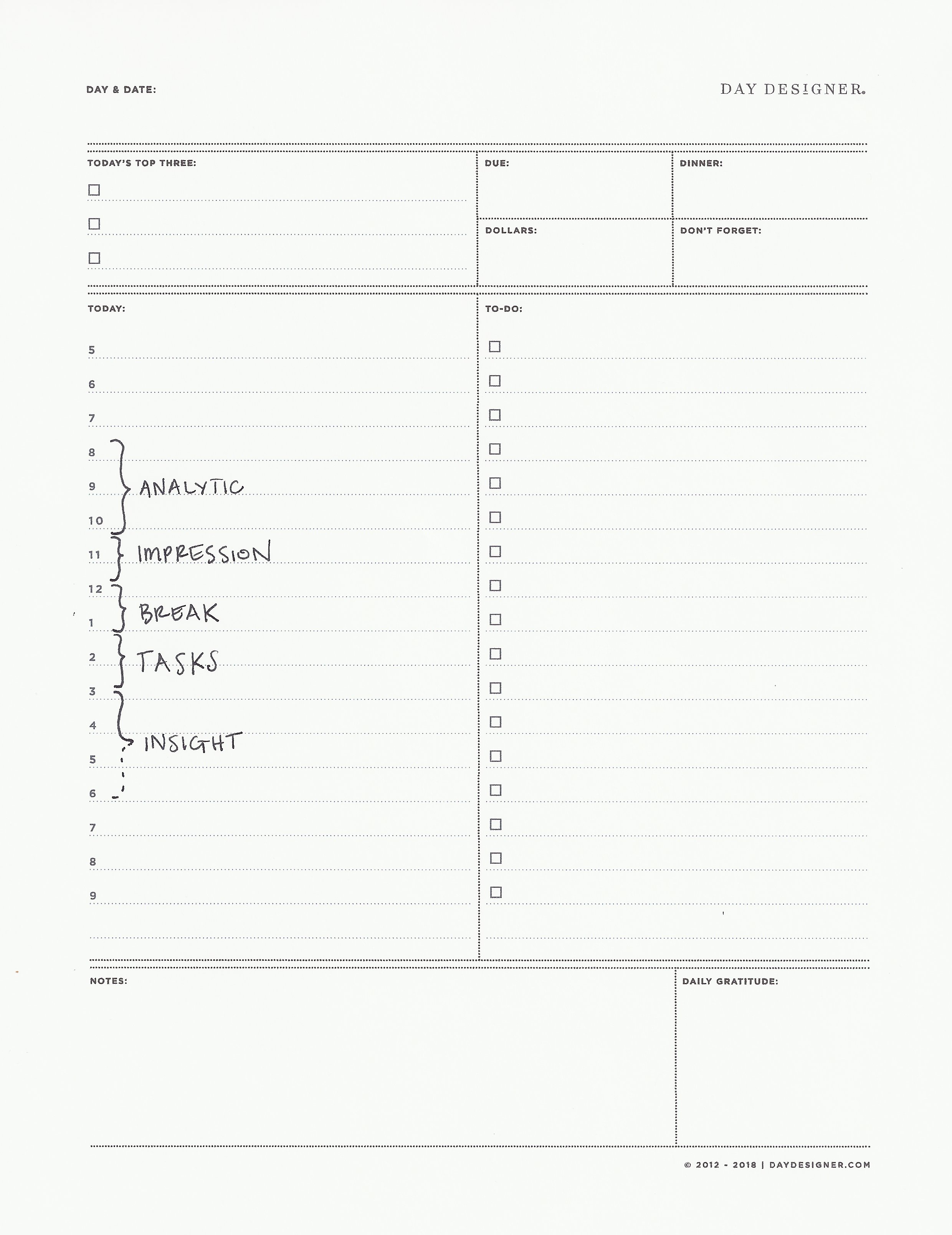Time Management for People Who Like Vacations
Over the weekend, I was out with a friend I hadn’t seen in a while. He asked me the customary, “What’s new?” and I replied that we were leaving for vacation on Friday. He said, “Every time I talk to you, you’re going on vacation!” I think that the old me would’ve been embarrassed and tried to justify it. After all, I’m an American. And I’m an entrepreneur. Am I worthy of success if I’m not working every hour of the day and humble-bragging about it? Instead, my reaction was to laugh and say, “That’s probably true! I really like vacations!”
How is this possible though? I’m a one-woman show, building a business.
I credit a lot of this to intense time management. I’ve written about my calendar love affair multiple times. I’m a weirdo about it. So, I’ve always been organized, yes. But then a couple months ago, I decided that not only was I going to be organized and productive… but I was going to feel energetic about it at the same time.
I was still fresh into my new venture, and I realized that just getting everything done wasn’t enough. Clients were counting on more. They were counting on my presence in the moment. Every time I was with someone I wanted to be all there. Being productive means nothing to me if I’m not the human being and professional I want to be, throughout the process.

To accomplish this aspirational idea, I relied upon new research in Daniel Pink’s book When. Before I get into how you can apply it to your own calendar, here’s his eye-opening thesis:
Our lives present a never-ending stream of ‘when’ decisions – when to change career, deliver bad news, schedule a class, end a marriage, go for a run, or get serious about a project or a person. But most of these decisions emanate from a steamy bog of intuition and guesswork. Timing, we believe, is an art.
I will show that timing is really a science – an emerging body of multifaceted, multidisciplinary research that offers fresh insights into the human condition and useful guidance on working smarter and living better. Visit any bookstore or library, and you will see a shelf (or twelve) stacked with books about how to do various things… Think of this book as a new genre altogether – a when-to book.
After applying Daniel Pink’s insights of when-to do things, I’ve created a work life that has me working 40.5 hours a week (I know because I’m a nerd and track every minute with the Hours app). This includes client work, research, business development, financials, strategic planning, and the hours that I’m spending writing this very article. I take at least one week long vacation a quarter. I leave my computer every single night at inbox zero. And by the way: I’m right on track for the ambitious year one goals I’d set for Ellevated Outcomes. So like I said, it’s possible to have these results and have a great life.
Here are five steps to take your time management to the next level:
1. Set time aside each morning to prioritize.
Set three (only three) priorities for the day that are make-it or break-it. If your whole day goes to hell, and only these three things get done, everything will still be okay. Check out this prior organization post for a refresher.
Also, take inventory of your tasks: these are things that you need to do (or outsource), but they’re not obstacles between you and your most important goals.
2. After you have your priority and task lists, label each as analytical, impression, task or insight.
Analytical. Requires sharpness, vigilance, and focus.
For me, this is mostly made up of super-detailed client planning, composing recaps, and proposals.
Impression. How you or others come off is important.
Think: prospect and client meetings, presentations, interviews, etc.
Task. Those things we cannot avoid like, TPS reports.
I do my bookkeeping, logistics planning, and emails during this time.
Insight. Requires innovation and creativity.
This is when you need your creative juices flowing – in whatever way creativity applies in your line of work. I also use this time to have more casual catch-ups with people, especially with referral sources and business partners who already know me. People with whom letting my analytical guard down is safe, and my propensity to get a little philosophical and not so serious will be appreciated.
My advice would be to do steps one and two for at least a week, just to get into the discipline. Then…
3. Take this quiz.
It’ll determine if you’re a lark, third bird, or owl; and therefore, what time of day you’re most effective at each category of work.

4. Block and tackle your calendar.
For the first few weeks, I literally drew blocks out on my calendar to give myself visual cues to form the habit.

And that’s it! So easy, right? 😉
No, I know that it’s not so easy.
First, this takes a lot of discipline. Second, allow me to be human for a moment. Sometimes I do feel deeply insecure when I hear about entrepreneurs working their 60 or 80 hour weeks, not taking vacations, and not paying themselves for the first year. I’m doing the opposite of all that, which of course, I’m happy about.
Yet, it is a little isolating and scary to admit, “Oh, I’m sorry that you have to work this weekend. I don’t even check my email for those 48 hours.” I ask myself if I’m missing something or if my business “luck” will eventually run out.
But when I step back and think about all the work I do on the front end, I’m convinced that disciplines like this afford me the freedom that others lack. When you set yourself up for success through discipline, thoughtfulness, and effectiveness, it is possible – and probable – to have different work and life outcomes from the others.


